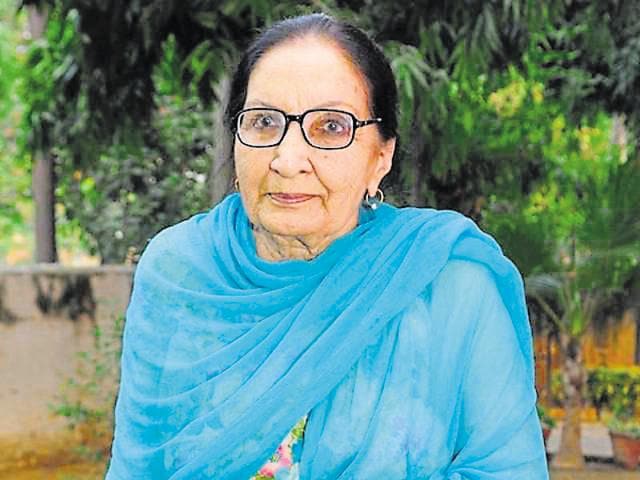Round about: Let the tale be told
The grande dame of Punjabi writers, Dalip Kaur Tiwana (81), is perhaps the last of the famous trio of pioneering women storytellers writing in Punjabi in the past century who is still going strong.
The grande dame of Punjabi writers, Dalip Kaur Tiwana (81), is perhaps the last of the famous trio of pioneering women storytellers writing in Punjabi in the past century who is still going strong.

The other two were Amrita Pritam, although essentially a poet she contributed substantially to fiction, and Ajeet Cour. The fourth name was of Sukhwant Kaur Maan who wrote very well on family and kinship of the post-1947 of the Punjab peasantry did not match the fame of the first three. While Amrita and Sukhwant are no more, Ajeet gave up writing a couple of decades ago to pursue literary organisation. So Dalip holds the baton still waiting as she were to hand it over to someone from the next generation.
Last October, Dalip had been bold enough to return the Padma Shri bestowed upon her to express solidarity with writers protesting against suppression of freedom of expression and growing communalism, saying: “This was the highest honour bestowed on me. I felt that if I give up this award, it will make my dissent against the “growing communalism in the country loud and clear”. And this September she is making waves as the long-awaited translation of her novel ‘Katha Kaho Urvashi’ is getting wide appreciation. Interestingly, translated by her husband Bhupinder Singh, a retired professor of Sociology, and edited by Elizabeth A Siler, it has been received as the finest of her works in translation.

Dalip has been a prolific writer having published 40 novels, seven collections of short stories, two autobiographies and a literary biography. The recipient of several awards, including the Sahitya Akademi Award and the Padma Shri, she retired as Professor of Punjabi and dean of the Faculty of Languages, Punjabi University, Patiala, where she is currently a life fellow and writer-in-residence.
She has an equal list of awards and honours ranging from the Sahitya Akademi Award to the Saraswati Samman and many others.
Her novel ‘Tell the Tale, Urvashi’ is a tragic saga of a landed Sikh family in the late 20th century and it is well known that it is her own parental family and the tragic suicide of her alcoholic brother, born after five sisters, and then similar fate befalling his young son, that compelled her to tell the tale of loss and love. It is said that there are no saints or sinners in the saga and she uses multiple narratives to tell this cathartic tale.
However, her student and writer Rama Rattan says: “When I read the novel, I felt the wife of the dead man had not been allowed a viewpoint and told her so. So she wrote a small novella to make amends called ‘Katha Turdi Rahi’.
In his appraisal, Rana Nayar, scholar-translator, points out: “It is an amazing work on an epical scale and though its roots are in personal loss, it becomes a universal lyrical meditation on death and after. Dalip herself will interact with audiences in the tricity on Sunday afternoon at Saranglok in Phase 11, Mohali. So it is over to Urvashi herself in a face-to face.
nirupama.dutt@hindustantimes.com



